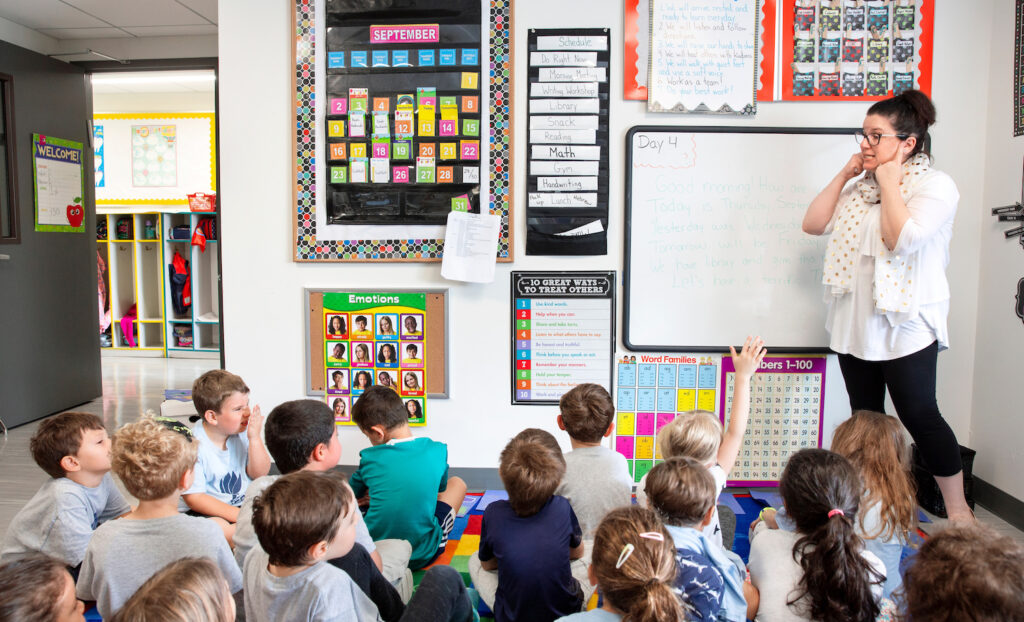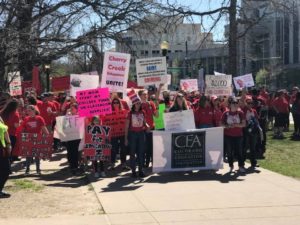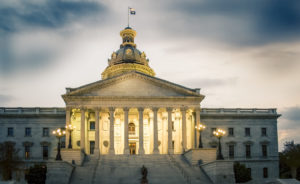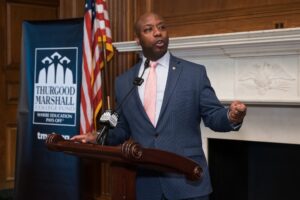Op-ed: South Carolina teachers’ union out to deprive students of learning options
(The Daily Signal) – Barely six months after South Carolina lawmakers approved legislation allowing K-12 students to customize their education, the state affiliate of the National…

(The Daily Signal) – Barely six months after South Carolina lawmakers approved legislation allowing K-12 students to customize their education, the state affiliate of the National Education Association is attempting to force children to remain in assigned public schools.
The South Carolina Education Association is the latest in a long line of education special-interest groups that oppose parental rights and have sought to limit students’ learning options through litigation. National teachers unions and their state affiliates have filed suits against parental choice in education in Arizona, Florida, New Hampshire, Ohio, Puerto Rico—the list goes on.
Fortunately for children, the unions and other lobbying groups have a losing record. And sometimes even when they succeed, the win comes back to haunt them.
In Arizona, for example, unions sued to close a K-12 private school scholarship option for children with special needs. Though the union successfully took options away from children with autism, Down syndrome, and other diagnoses, the decision inspired advocates to create education savings accounts, which allow students to access private schools and more, including personal tutors, education therapists, and curricular materials.
Today, accounts or account-style options are available in more than a dozen states, and in some of those states, every school-age child can apply for an account.
South Carolina lawmakers adopted education savings accounts earlier this year. Starting in the 2024-2025 school year, students from low-income families (families earning up to 200% of the federal poverty line) will be eligible to apply for the accounts.
Similar to account options in Arizona, Florida, and North Carolina, moms and dads can use scholarships to pay for online classes, buy textbooks, access private schools, and more. The eligibility criteria expand each year until the 2026-2027 school year, when students from families earning up to 400% of the poverty line will be eligible.
Education special-interest groups in South Carolina stopped children from finding alternatives to assigned schools during the COVID-19 pandemic. In 2020, the state Supreme Court ruled against Republican Gov. Henry McMaster’s proposal to use federal relief dollars and offer private school scholarships and help students get back to class.
During the pandemic, some 60% to 90% of private schools were open to in-person learning around the country when public schools were not.
Like the 2020 lawsuit, the new filing claims the state constitution prohibits the use of public money for private schools. Yet in the past decade, the U.S. Supreme Court has issued two rulings in favor of families participating in state-based private school choice opportunities.
Espinoza v. Montana Department of Revenue and Carson v. Makin both affirmed that parents can access religious and secular schools as part of state-based education choice programs. As The Heritage Foundation’s John Malcolm and Sarah Parshall Perry explained, federal courts have made rulings that could work in parents’ favor.
South Carolina officials should make use of those rulings in the case filed this week.
Meanwhile, parents and lawmakers should call the union to account for accusing private schools of discrimination. In the South Carolina Education Association’s press release, the special-interest group said private schools discriminate against students based on different factors, including disability and “gender identity.” Yet, district schools in South Carolina have been accused of teaching discriminatory concepts such as critical race theory and even trying to separate students by race for school activities.
In fact, parents use private school choice options specifically to help their children with special needs when assigned schools fail to do so. And parents are also choosing private schools, microschools, homeschooling, and other options to get away from the radical material some district schools are using.
The union is trying to limit student options in K-12 and mislead South Carolinians. The court should see the discrimination in the former, and lawmakers and families should recognize the dishonesty in the latter.



